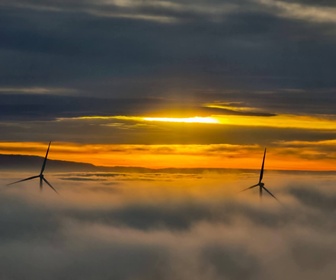In the German offshore wind energy industry in 2018, almost 800 market participants with around 24,500 employees generated more than 9 billion euros of revenue according to a study from market research institute wind:research.
Following major advances in recent years the industry is currently at a crossroads. It is stagnating on the basis of the recently set political conditions, such as the changes to the EEG in 2014 and 2017. Limiting the expansion will have a decisive influence on the further development after 2019 and thus also on the development of market participants as well as their number of employees and revenue - across all stages of the value chain.
The value creation, both in terms of employee numbers and revenue, is distributed across Germany: there is a high level of employment in Baden-Wuerttemberg (R&D, engineering) and North Rhine-Westphalia (components), while the areas of transport, assembly, project development as well as O&M traditionally are strongly represented in the North of Germany. In contrast, (plant) components are also manufactured in many Western and Southern German locations. Striking is the high proportion of Southern federal states in the area of engineering as well as R&D. The area of financing traditionally focuses on the Frankfurt am Main region. Many market participants from Northern Germany (e.g. turbine or foundation production) depend on companies from the engineering or supplier industry (e.g. steel construction, gears, etc.), whose regional focus lies in Southern Germany.
Based on the 771 market participants as well as their number of employees and revenue, a decline in the number of employees and a decline in sales in the next few years, due to the slowdown in orders in the German market, is expected in all scenarios. Of the approx. 1,000 market participants in 2011, just under 800 are still active due to the consolidation. If the current expansion target is not raised, a reduction in the number of employees from around 24,500 (2018) to around 16,000 (2035) has to be expected. Other countries, such as the United Kingdom and the Netherlands, are actively promoting the expansion of offshore wind energy and are developing industry and value creation. Therefore, a change in the current framework conditions in Germany is necessary in order to avoid falling behind and to maintain or expand its own value creation (market participants, revenue and employment).









